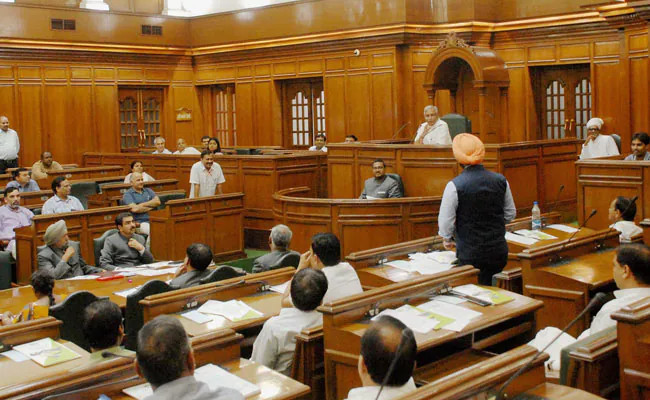The court highlighted a growing trend wherein one party invokes the jurisdiction of a foreign court, while the other prefers Indian courts
In a recent development, the Delhi High Court has clarified its position on matrimonial proceedings in foreign courts involving non-resident Indians, stating that Indian courts can issue anti-suit injunctions if such proceedings are deemed oppressive or vexatious. This information was reported by livelaw.in.
A division bench comprising Justice V Kameswar Rao and Justice Anoop Kumar Mendiratta addressed the issue while handling a case under the Hindu Marriage Act, 1955. The bench highlighted a growing trend wherein one party invokes the jurisdiction of a foreign court, while the other prefers Indian courts.
The court emphasized that the power to issue anti-suit injunctions should be exercised sparingly, considering the rule of comity. It stated, “The cases of injunction are governed by the doctrine of equity, and one of the tests for issuance of anti-suit injunction is whether the foreign proceedings are ‘oppressive or vexatious’ and if the grant of anti-suit injunction is necessary in the interest of justice.”
“For the foregoing reasons, we are not inclined to interfere with the impugned order. The appeal is accordingly dismissed.”
— High Court
The observations came during the dismissal of an appeal by a husband challenging a family court order that lifted an ad-interim injunction preventing the wife from pursuing a divorce petition filed in the USA.
The couple, married in October 2018, had moved to the USA shortly after. A child was born in 2021, residing in the USA under joint custody. The husband filed a divorce petition under Section 13(1)(ia) of the HMA in India, while the wife initiated a similar plea in the State of Michigan.
The husband filed an anti-injunction suit to halt the wife’s divorce proceedings, obtaining an ex parte ad-interim injunction, later vacated by the family court. Upholding the family court’s decision, the Delhi High Court noted that there was no compelling reason to believe that the husband would suffer grave injustice without the anti-suit injunction.
The court concluded, “For the foregoing reasons, we are not inclined to interfere with the impugned order. The appeal is accordingly dismissed.”
************************************************************************
Readers








